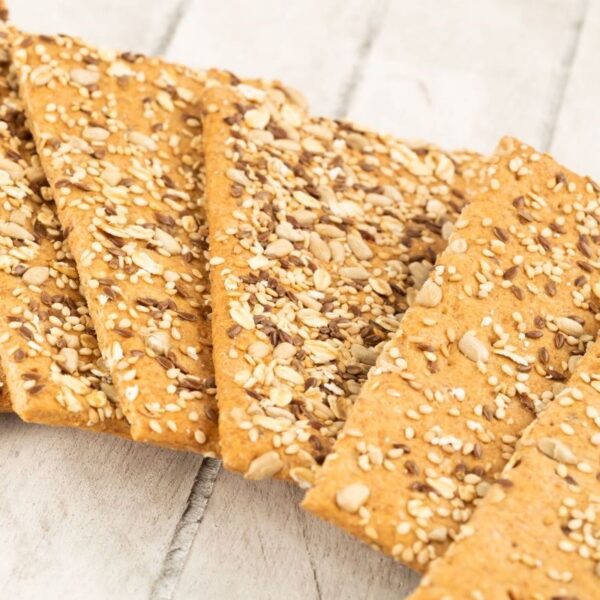Zinc gluconate is a form of zinc derived from the zinc salt of gluconic acid, which is widely used in the nutrition industry as a source of zinc. Zinc, a vital mineral found naturally in certain foods, is added to others and is used as a supplement to support overall health. It is an essential mineral crucial in many bodily functions, including immune function, DNA synthesis, and cell division. Zinc gluconate is used in the food and nutrition industry as a dietary supplement consumed via nutraceuticals and functional foods through fortification.
What is Zinc Gluconate?
Zinc gluconate, a zinc salt of gluconic acid, is a compound with the chemical formula C12H22O14Zn. It provides 14.35% elemental zinc by weight.

Source: Wikipedia
How is Zinc Gluconate Produced?
Zinc gluconate is produced by neutralizing gluconic acid with a high-purity zinc source and subsequent spray-drying. It is available as a white to almost white, granular or crystalline powder with good solubility in water and practically insoluble in alcohol.
Product Examples
| Type | Examples |
| Dietary Supplements | Tablets, suspensions, chewable, gummies, capsules |
| Functional Foods | Dairy, confectionery, cereal products, desserts |
| Infant Nutrition | Infant formulas, milk substitutes |
| Functional Beverages | Juices, carbonated drinks, sports drinks, water |
| Clinical Nutrition | Oral clinical nutrition, parenteral nutrition |
Properties of Zinc Gluconate
| Physical Form | Solid, granular powder |
| Color | White |
| Storage Conditions | Keep container tightly closed in a dry and well-ventilated place |
| Molecular Weight | 455.7 g/mol |
| Density | 1.44 g/cc |
| Melting Point | 172-175°C |
| Solubility | Readily soluble in water (100g/L) |
Recommended Storage and Handling
Zinc gluconate should be stored in a well-ventilated place in a dry environment and kept cool to maintain its quality.
Typical Formulations
Oral suspension
Here is an example formulation of a zinc gluconate oral suspension:
| Ingredient | Composition |
| Zinc gluconate | 3.0 g |
| White granulated sugar | 120 g |
| Casein phosphopeptides | 0.4 g |
| Essence (Lychee) | 0.22 ml |
| Citric acid | To adjust pH to 3.0-6.0 |
| Water | To make up 1000 ml |
Source: Google Patents
Chewable tablet
Here is an example of a freeze-dried formulation to obtain zinc gluconate chewable tablet:
| Ingredient | Composition |
| Zinc gluconate | 35 g |
| Sucrose | 85 g |
| Corn starch | 150 g |
| Sodium hydroxide | Adjust to pH 6.5 |
| Water | 1000 ml |
Source: Google Patents
Zinc Gluconate Formulation Considerations
| Physical Forms | Powder |
| Stability | Thermal: 155°C Oxidation: Stable pH: Stable |
| Sensory Attributes | Neutral odor and taste |
Dose and Dosage Form
As a dietary supplement, zinc gluconate is typically taken in tablet or capsule form. The recommended dosage varies depending on age, sex, and health needs. It is important to follow the recommended dosage instructions provided on the supplement packaging or by a healthcare provider.
OTC Usage
Zinc salts are used as over-the-counter (OTC) drugs as external analgesics for fever blisters and cold sores. Zinc gluconate lozenges are commonly used for this purpose, helping to relieve symptoms such as sore throat, cough, sneezing, stuffy nose, and a hoarse voice. Additionally, zinc gluconate is used as an adjunctive therapy for diarrhea. Zinc supplementation has been shown to reduce diarrhea’s duration and severity and prevent subsequent episodes. However, it is crucial to note that zinc gluconate is medically not proven to be effective in treating colds.
Absorption and Excretion
Zinc gluconate is absorbed in the body through the small intestine, which is transported into the bloodstream. After oral administration, zinc compounds like zinc gluconate are excreted through feces and urine at different time points following ingestion.
Comparison with Other Zinc Supplements
Zinc gluconate has been shown to have higher bioavailability at low doses than other zinc, including zinc sulfate. Studies suggest that the body may more efficiently absorb zinc gluconate than zinc citrate and zinc oxide. Zinc citrate is absorbed in similar quantities as zinc gluconate but has a peculiar bitter taste. Zinc gluconate has a milder flavor. Thus, it is often used in cold remedies and lozenges due to its comparatively pleasant taste.
Due to its exceptional ability to dissolve easily, zinc gluconate is ideal for use in both liquid and powdered products. Because it is an organic mineral source, it has high bioavailability and compatibility with the body compared to inorganic sources. However, in a study, the net balance of zinc absorption was higher for zinc-enriched yeast than for zinc gluconate and zinc sulfate.
Safety & Regulatory Considerations
| FDA Information | Zinc gluconate is generally recognized as a safe (GRAS) substance by the US FDA. It is approved to be used as a nutrient. |
| EU Information | Zinc gluconate is approved to be added to food products as a mineral substance by the EU. |
Health Effects of Zinc Gluconate
- Supports immune system function: Zinc plays a vital role in supporting the growth and performance of immune cells like neutrophils, natural killer cells, and macrophages. Phagocytosis, intracellular killing, and cytokine production are all affected by zinc deficiency.
- Speeds up cold recovery: Zinc gluconate lozenges have been shown to accelerate the resolution of cold symptoms, such as sore throat, cough, and congestion. Zinc may also reduce the severity of cold symptoms by acting as an astringent on the trigeminal nerve. However, some common adverse effects highlighted the need for further research.
- Promotes wound healing: Zinc gluconate supports the entire wound healing process, from membrane repair, oxidative stress, coagulation, inflammation and immune defense, tissue re-epithelialization, and angiogenesis to fibrosis/scar formation.
- Decreases inflammation: Zinc gluconate exhibits antioxidant and anti-inflammatory effects, which may help combat chronic diseases.
- May improve blood sugar management: Some studies suggest that zinc gluconate may help maintain stable blood sugar levels and improve insulin sensitivity.
Safety & Toxicity of Zinc Gluconate
Zinc gluconate is considered a generally recognized safe (GRAS) substance by the FDA. Ingesting doses of elemental zinc ranging from 100 to 150 mg/day for prolonged periods can interfere with copper metabolism and cause low blood copper levels, red blood cell microcytosis, neutropenia, and impaired immunity. Higher doses (200 to 800 mg/day) can cause anorexia, vomiting and diarrhea.
Identification Numbers
| IUPAC Name | zinc;(2R,3S,4R,5R)-2,3,4,5,6-pentahydroxyhexanoate |
| CAS Number | 4468-02-4 |
| EC Number | 224-736-9 |
Acceptable Limits or Maximum Usage
As per the WHO JECFA, the PMTDI (Provisional Maximum Tolerable Daily Intake) for elemental zinc has been set to 0.3-1.0 mg/kg body weight.
Fun Facts About Zinc Gluconate
- Compared to other forms of zinc, such as zinc sulfate, zinc gluconate is relatively tasteless, making it more palatable for consumption in supplements or medications.
- Zinc deficiency is relatively common, particularly in populations with poor dietary intake or conditions that impair zinc absorption, such as certain gastrointestinal disorders. Supplementation with zinc gluconate can help address deficiencies.
- Zinc absorption can be influenced by other nutrients in the diet, such as phytates, which are found in grains and legumes and can inhibit zinc absorption. Conversely, vitamin C can enhance zinc absorption.







